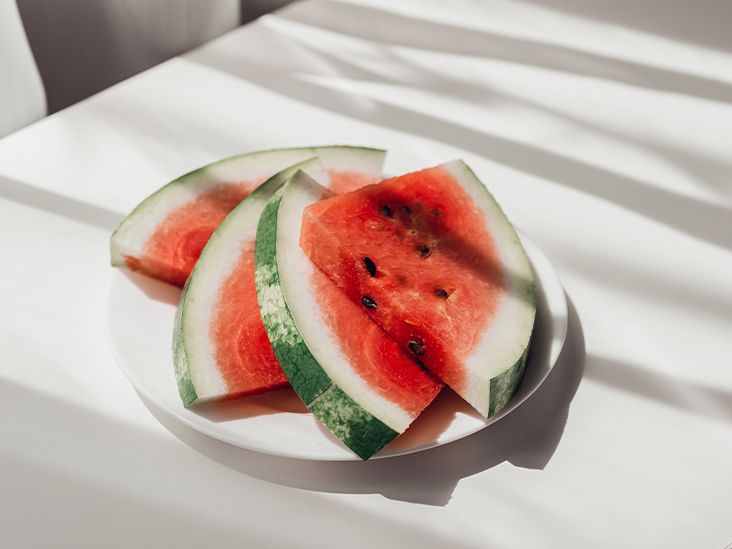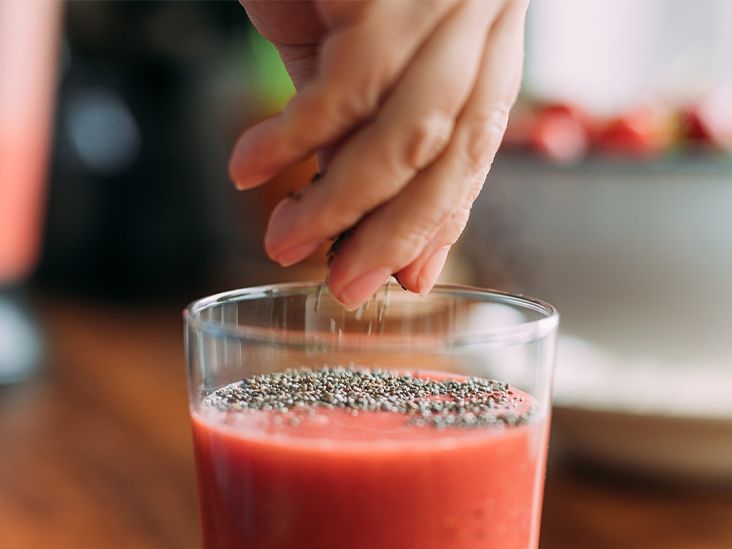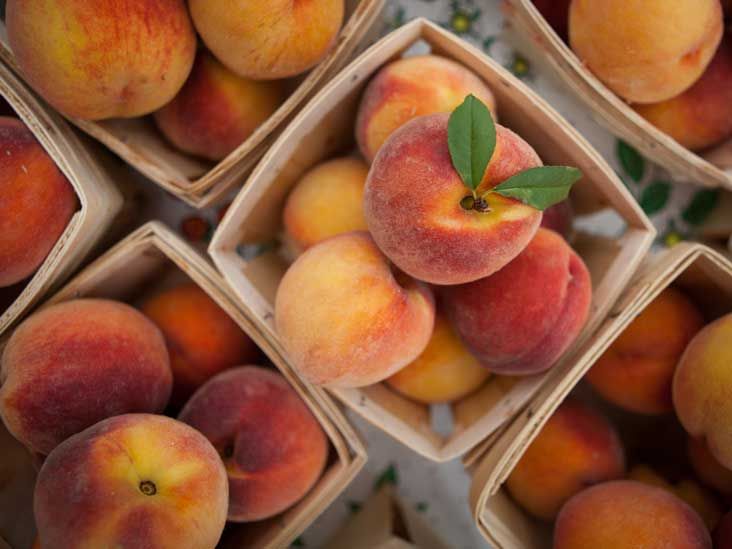Chickpeas, also known as garbanzo beans, have been grown and eaten in Middle Eastern countries for thousands of years.
Their nutty taste and grainy texture pair well with many other foods and ingredients.
As a rich source of vitamins, minerals, and fiber, chickpeas may offer a variety of health benefits, such as aiding weight management, improving digestion, and reducing your risk of disease.
Additionally, this legume is high in protein and makes an excellent replacement for meat in many vegetarian and vegan dishes.
Here are 10 evidence-based health benefits of chickpeas — plus some simple recipe ideas.

Chickpeas boast an impressive nutritional profile.
They contain a moderate number of calories, providing 269 per cup (164 grams). Approximately 67% of these calories come from carbs, while the rest comes from protein and fat (
Chickpeas also provide a variety of vitamins and minerals, as well as a decent amount of fiber and protein. A 1-cup (164-gram) serving of cooked chickpeas offers (
- Calories: 269
- Protein: 14.5 grams
- Fat: 4 grams
- Carbs: 45 grams
- Fiber: 12.5 grams
- Manganese: 74% of the Daily Value (DV)
- Folate (vitamin B9): 71% of the DV
- Copper: 64% of the DV
- Iron: 26% of the DV
- Zinc: 23% of the DV
- Phosphorus: 22% of the DV
- Magnesium: 19% of the DV
- Thiamine: 16% of the DV
- Vitamin B6: 13% of the DV
- Selenium: 11% of the DV
- Potassium: 10% of the DV
As you can see, this legume is a particularly good source of the mineral manganese and the B vitamin folate.
SummaryChickpeas contain a moderate amount of calories and several vitamins and minerals. They’re also a good source of fiber and protein.
The protein and fiber in chickpeas may help keep your appetite under control.
Protein and fiber work together to slow digestion, which helps promote fullness. In addition, protein may increase levels of appetite-reducing hormones in your body (
In fact, the filling effects of the protein and fiber in chickpeas may automatically lower your calorie intake (
One study compared appetite and calorie intake among 12 women who ate two separate meals (
Before one of the meals, they ate 1.25 cups (200 grams) of chickpeas, then 2 slices of white bread before the other meal. They experienced a significant reduction in appetite and calorie intake after the chickpea meal, compared with the white bread meal (
Another small study found that those who ate pretzels and chickpea-based hummus for an afternoon snack experienced a 70% reduction in appetite and a 30% increase in fullness (
All the same, more research is needed on chickpeas and appetite control.
SummaryChickpeas are high in protein and fiber, which may keep you feeling full and reduce your calorie intake at meals.
Chickpeas are a great source of plant-based protein, making them an excellent food for people who don’t eat meat or animal products.
A 1-cup (164-gram) serving provides about 14.5 grams of protein, which is comparable to the protein content of similar foods like black beans and lentils (
The protein in chickpeas may help promote fullness and keep your appetite under control. Protein is also known for its role in weight management, bone health, and muscle strength (
Some studies have suggested that the quality of the protein in chickpeas is better than that of other types of legumes. That’s because chickpeas contain all of the essential amino acids except methionine (
For this reason, they’re an incomplete source of protein. To make sure you get all the amino acids in your diet, it’s important to pair chickpeas with a whole grain that contains methionine, such as quinoa (
SummaryChickpeas are an excellent source of protein, which may aid weight management and boost bone health. This legume is a great choice for people who don’t eat animal products.
Chickpeas may aid weight management due to their filling effects.
The protein and fiber in chickpeas may reduce your appetite, which may then lower your calorie intake at meals (
In one study, those who ate chickpeas regularly were 53% less likely to have a body mass index (BMI) over 30 and more likely to have a lower waist circumference than those who didn’t eat chickpeas (
While BMI remains a common health metric, keep in mind that it’s limited in its effectiveness.
Nonetheless, another review found that those who ate at least 1 daily serving of legumes, such as chickpeas, lost 25% more weight than those who didn’t eat legumes (
Although these findings are promising, more human studies are needed.
SummaryChickpeas’ fiber and protein content, plus their relatively low calorie density, may help you maintain a healthy weight.
Chickpeas may help manage your blood sugar levels in several ways.
First, they have a fairly low glycemic index (GI), which is a marker of how rapidly your blood sugar rises after eating a food. Diets that include many low GI foods have been shown to promote blood sugar management (
Additionally, chickpeas’ fiber and protein may help regulate blood sugar levels.
That’s because fiber slows carb absorption to promote a steady rise in blood sugar levels rather than a spike. Eating protein-rich foods may also help maintain healthy blood sugar levels (
In one small study, eating 1.25 cups (200 grams) of chickpeas suppressed post-meal increases in blood sugar levels by up to 36%, compared with eating 2 slices of white bread (
An older, 12-week study found that 45 people who ate four 10.5-ounce (300-gram) cans of chickpeas per week had a notable reduction in fasting insulin levels, which is an important factor in blood sugar regulation (
What’s more, several studies associate chickpea intake with a reduced risk of several diseases, including diabetes and heart disease. These effects are often attributed to their capacity to lower blood sugar levels (
SummaryChickpeas have a low GI and are a great source of fiber and protein — all properties that support healthy blood sugar management.
Chickpeas are full of fiber, which offers several benefits for digestive health (
The fiber in chickpeas is mostly soluble, meaning that it blends with water to form a gel-like substance in your digestive tract.
Soluble fiber may help increase the number of healthy bacteria in your gut and prevent the overgrowth of unhealthy bacteria. This may lead to reduced risk of some digestive conditions, such as irritable bowel syndrome (IBS) and colon cancer (
According to one review, chickpeas may also help support digestive health by improving the frequency, ease, and consistency of bowel movements (
SummaryChickpeas are high in fiber, which benefits your digestion by supporting bowel movements and increasing the number of healthy bacteria in your gut.
Chickpeas may help reduce your risk of several chronic illnesses.
Heart disease
Chickpeas are a great source of several minerals, such as magnesium and potassium, which may support heart health by helping prevent high blood pressure — a major risk factor for heart disease (
Additionally, the soluble fiber in chickpeas has been shown to reduce triglycerides and LDL (bad) cholesterol, elevated levels of which may increase heart disease risk (
According to a review of 26 studies, eating at least 1 serving per day of legumes, including chickpeas, may help significantly lower LDL (bad) cholesterol (
Cancer
Some research suggests that eating chickpeas regularly may help reduce your risk of certain types of cancer.
That’s because this legume may promote your body’s production of butyrate, a fatty acid that may reduce inflammation in colon cells, possibly decreasing your risk of colon cancer (
Furthermore, chickpeas contain saponins, which are plant compounds that may help prevent the development of certain cancers. Saponins have also been studied for their role in inhibiting tumor growth (
Chickpeas also provide several vitamins and minerals that may lower your cancer risk, including B vitamins, which may be associated with a lower risk of breast and lung cancers (
Type 2 diabetes
Chickpeas may help prevent and manage diabetes due to their blood-sugar-regulating effects.
The fiber and protein in chickpeas help stop your blood sugar levels from rising too quickly after eating, which is an important factor in diabetes management (
Additionally, their low glycemic index (GI) makes them appropriate for those with diabetes, as they’re unlikely to lead to blood sugar spikes (
Finally, they’re a source of several nutrients that have been found to reduce your risk of type 2 diabetes, including magnesium and B vitamins. Their zinc content may also help manage this condition (
SummaryChickpeas may help prevent some chronic illnesses, including heart disease, cancer, and type 2 diabetes.
Thanks to their impressive nutrient profile, chickpeas may support brain function and mental health.
This is partly because they’re a great source of choline, which plays an important role in brain function.
In particular, this essential nutrient is required for the production of specific neurotransmitters, which act as chemical messengers for your body’s nerve cells. However, while choline is vital for infants, its role in adult health isn’t well researched (
Chickpeas also contain a hearty dose of magnesium, a key mineral for nerve function (
What’s more, research shows that several nutrients found in these legumes, including magnesium, selenium, and zinc, may help protect against depression and anxiety (
Still, further human studies are necessary.
SummaryChickpeas are rich in several nutrients that may support brain health, including choline, magnesium, selenium, and zinc.
Chickpeas are an excellent source of iron, packing approximately 26% of the DV into 1 cup (164 grams) (
Iron is involved in red blood cell production, as well as physical growth, brain development, muscle metabolism, and other aspects of health (
If you’re not getting enough of this key micronutrient, your body’s ability to produce healthy red blood cells may be impaired. In turn, this may lead to iron deficiency, a condition characterized by symptoms like weakness, fatigue, and shortness of breath (
As such, chickpeas are a great option for people who may be at a high risk of iron deficiency, such as vegans and vegetarians (
Chickpeas also contain some vitamin C, which may help boost your body’s iron absorption (
SummaryChickpeas are a good source of iron and may help safeguard against iron deficiency.
Chickpeas are incredibly easy to add to your diet.
They’re affordable and widely available in both canned and dry varieties. Due to their high protein content, they’re an excellent substitute for meat on vegetarian and vegan diets.
Plus, chickpeas are versatile and can be added to a variety of dishes, such as salads, soups, or sandwiches.
They’re also a main ingredient in hummus, which is a dip made from mashed chickpeas, tahini, olive oil, lemon juice, salt, and garlic.
Finally, you can roast chickpeas for a delicious and crunchy snack, or incorporate them into veggie burgers and tacos.
SummaryChickpeas are cheap and taste great in numerous dishes. They’re the main ingredient in hummus and make a great meat substitute due to their protein content.
Chickpeas aren’t just an essential ingredient in hummus or a delectable ingredient in chili.
They’re also very healthy, boasting vitamins, minerals, fiber, and protein. These characteristics may support weight management, blood sugar regulation, and brain health while reducing your risk of chronic ailments like heart disease and cancer.
To get started with chickpeas, try roasting them as a snack or adding them to a salad.
Just one thing
Try this today: If you’re feeling creative, try mixing puréed chickpeas into baked goods. They not only add a rich texture and nutty flavor to brownies, bars, and cookies but also give these tasty desserts a healthy twist!






